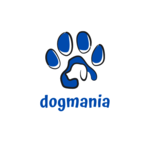Top 5 Myths About Grain-Free Dog Food Debunked
Grain-free dog food has surged in popularity over recent years, driven by pet owners seeking what they believe to be healthier options for their furry companions. However, this trend has also given rise to numerous misconceptions. In this article, we’ll debunk the top five myths about grain-free dog food, providing clarity and helping you make informed choices for your pet.
Myth 1: Grain-Free Means Carb-Free
One of the most common myths is that grain-free dog food is carbohydrate-free. Many people assume that by eliminating grains, they are also eliminating all carbs, which is not the case. Grain-free dog foods often replace grains with other carbohydrate sources like potatoes, peas, or lentils. These ingredients can actually result in a higher carbohydrate content than some grain-inclusive options.
Reality: Not all carbohydrates are bad for dogs. They can provide essential nutrients and energy. The key is to focus on the quality and type of carbohydrates rather than the mere presence of grains.
Myth 2: Grain-Free Diets Are Hypoallergenic
Another prevalent belief is that grain-free diets are inherently hypoallergenic and suitable for all dogs with allergies. While grains can be a source of allergies in some dogs, they are not the most common allergens. Proteins like beef, dairy, and chicken are more frequent culprits.
Reality: Grain-free diets are not a guaranteed solution for allergies. If your dog has allergies, it’s crucial to identify the specific allergens through testing and consult with a veterinarian to determine the best diet for your pet.
Myth 3: Grain-Free Diets Are Always Healthier
Many pet owners choose grain-free diets under the impression that they are healthier. This belief is often fueled by marketing claims that suggest grains are unnatural or harmful to dogs. However, dogs have been domesticated for thousands of years and have evolved to digest a variety of foods, including grains.
Reality: The healthiness of a dog food depends on its overall nutritional balance, quality of ingredients, and suitability for your dog’s specific needs. Some grain-free diets may lack essential nutrients or include ingredients that are not necessarily healthier alternatives. Always check the nutritional profile and consult with a veterinarian when choosing a diet.
Myth 4: Grain-Free Diets Prevent Weight Gain
Some dog owners believe that grain-free diets can help prevent obesity in dogs, assuming that grains are fattening. However, weight management in dogs depends more on portion control and exercise than on the absence of grains. In fact, some grain-free foods can be higher in calories and fat due to the inclusion of alternative ingredients like sweet potatoes and legumes.
Reality: To prevent weight gain, it’s essential to feed your dog the correct portion sizes and ensure they get regular exercise. The choice between grain-free and grain-inclusive diets should be based on your dog’s specific dietary needs rather than the assumption that one is inherently better for weight control.
Myth 5: Grain-Free Diets Are Necessary for All Dogs
The marketing push for grain-free dog food can create the impression that all dogs need to be on a grain-free diet to be healthy. This is not supported by scientific evidence. In fact, recent studies have raised concerns about the potential link between certain grain-free diets and heart disease, specifically dilated cardiomyopathy (DCM) in dogs.
Reality: Grain-free diets are not necessary for all dogs and can be inappropriate for some. The FDA has been investigating potential links between grain-free diets and DCM, particularly those high in legumes like peas and lentils. While more research is needed, it’s important to consult your veterinarian before making dietary changes, especially if your dog has specific health concerns.
Conclusion: Making Informed Choices
Choosing the right diet for your dog is a crucial decision that should be based on their individual health needs, lifestyle, and preferences. While grain-free diets may be beneficial for some dogs, they are not a one-size-fits-all solution. Understanding the myths and realities about grain-free dog food can help you make a more informed choice.
When considering a grain-free diet, consult with your veterinarian to discuss your dog’s health, potential allergies, and dietary requirements. Remember, the best diet is one that provides complete and balanced nutrition, suits your dog’s specific needs, and keeps them happy and healthy.
In the end, the focus should be on the overall quality and nutritional value of the food rather than the presence or absence of grains. By debunking these myths, you can better navigate the complex world of pet nutrition and ensure that your furry friend enjoys a diet that supports their well-being.



leave me your thoughts here